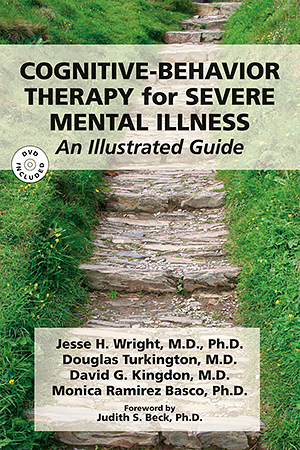Chapter 5.Delusions
Sections
Excerpt
This chapter provides a description of the key elements involved in treating delusions with CBT. First we discuss how the general features of CBT can be employed to decrease delusional beliefs. We then explore how the classic definition of delusions may need revision if the clinician seeks to use cognitive-behavioral methods to induce change. The main emphasis of the chapter is on describing and illustrating specific CBT methods for modifying delusional beliefs in schizophrenia. Guidelines are also provided for dealing with resistant delusions and delusional beliefs in mood disorders.
Access content
To read the fulltext, please use one of the options below to sign in or purchase access.- Personal login
- Institutional Login
- Sign in via OpenAthens
- Register for access
-
Please login/register if you wish to pair your device and check access availability.
Not a subscriber?
PsychiatryOnline subscription options offer access to the DSM-5 library, books, journals, CME, and patient resources. This all-in-one virtual library provides psychiatrists and mental health professionals with key resources for diagnosis, treatment, research, and professional development.
Need more help? PsychiatryOnline Customer Service may be reached by emailing [email protected] or by calling 800-368-5777 (in the U.S.) or 703-907-7322 (outside the U.S.).



